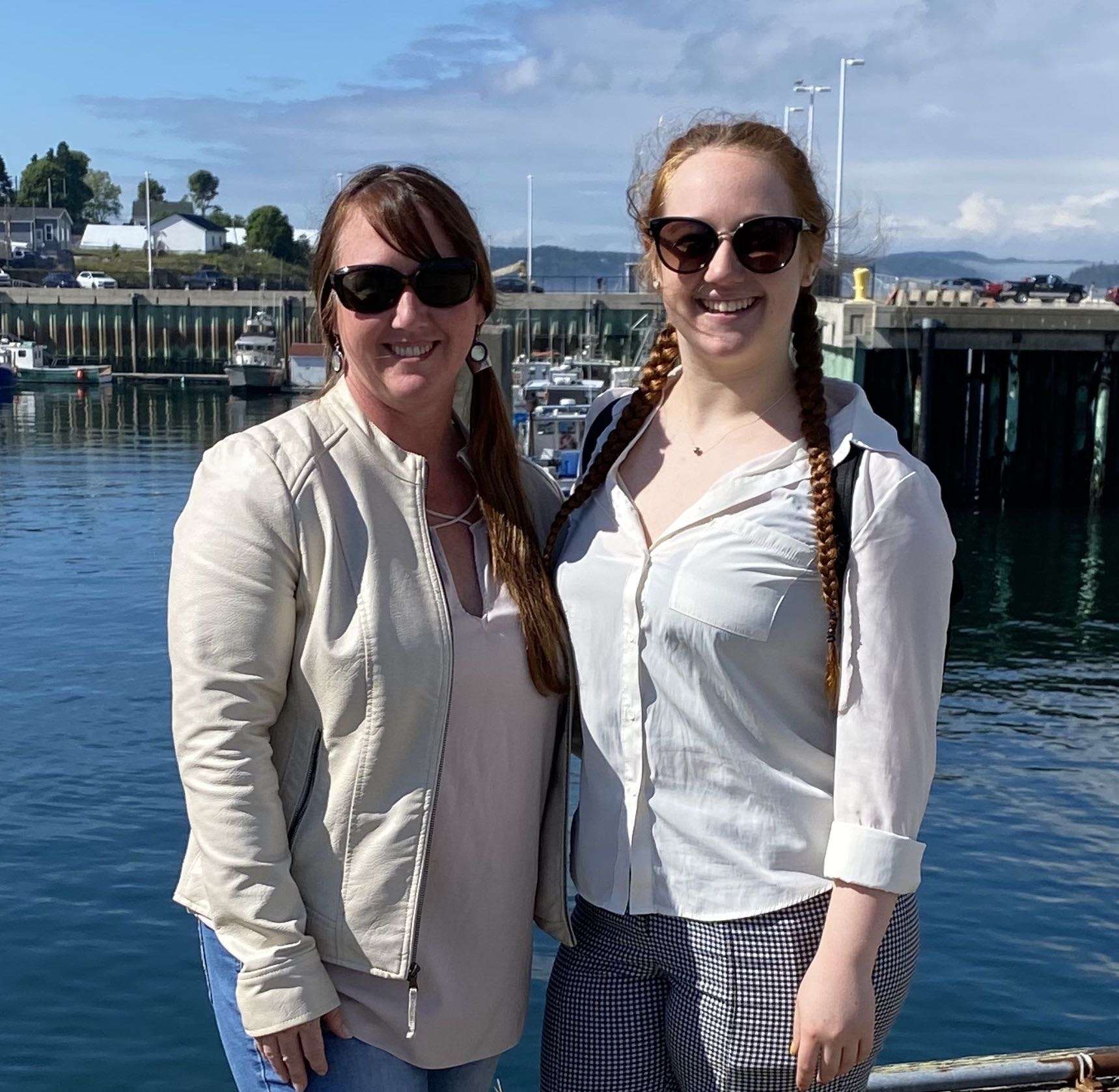
Processing Your Payment
Please do not leave this page until complete. This can take a few moments.
- News
-
Editions
-
- Lists
-
Viewpoints
-
Our Events
-
Event Info
- Women's Leadership Forum 2025
- On the Road with Mainebiz in Bethel
- Health Care Forum 2025
- On The Road with Mainebiz in Greenville
- On The Road with Mainebiz in Waterville
- Small Business Forum 2025
- Outstanding Women in Business Reception 2025
- On The Road with Mainebiz in Bath
- 60 Ideas in 60 Minutes Portland 2025
- 40 Under 40 Awards Reception 2025
- On The Road with Mainebiz in Lewiston / Auburn
- 60 Ideas in 60 Minutes Bangor 2025
Award Honorees
- 2025 Business Leaders of the Year
- 2024 Women to Watch Honorees
- 2024 Business Leaders of the Year
- 2023 NextUp: 40 Under 40 Honorees
- 2023 Women to Watch Honorees
- 2023 Business Leaders of the Year
- 2022 NextUp: 40 Under 40 Honorees
- 2022 Women to Watch Honorees
- 2022 Business Leaders of the Year
-
-
Calendar
-
Biz Marketplace
- News
-
Editions
View Digital Editions
Biweekly Issues
- April 21, 2025 Edition
- April 7, 2025
- March 24, 2025
- March 10, 2025
- Feb. 24, 2025
- Feb. 10, 2025
- + More
Special Editions
- Lists
- Viewpoints
-
Our Events
Event Info
- View all Events
- Women's Leadership Forum 2025
- On the Road with Mainebiz in Bethel
- Health Care Forum 2025
- On The Road with Mainebiz in Greenville
- On The Road with Mainebiz in Waterville
- + More
Award Honorees
- 2025 Business Leaders of the Year
- 2024 Women to Watch Honorees
- 2024 Business Leaders of the Year
- 2023 NextUp: 40 Under 40 Honorees
- 2023 Women to Watch Honorees
- 2023 Business Leaders of the Year
- + More
- 2022 NextUp: 40 Under 40 Honorees
- 2022 Women to Watch Honorees
- 2022 Business Leaders of the Year
- Nomination Forms
- Calendar
- Biz Marketplace
South Portland startup uses tech to connect tourists, guides, off the beaten path
NaviTour is a new Maine business that launched last month with an online platform streamlining the connection between independent tour guides and visitors who flock the state.
The South Portland company says its focus is twofold: broaden visitor experiences outward from congested tourist areas to rural communities and with individual guides, and broaden diversity among the people taking and leading tours.
“With diversity and inclusion at our core, we empower all creating experiences to build their own brand, own their content, and expand their businesses,” said CEO Shay Bellas, whose partnerships include the Four Directions Development Corp. and its Wabanaki Cultural Tourism Initiative, Maine Oyster Trails and Maine Island Trail Association.
Bellas is a serial entrepreneur. In 2000, she founded Maine Freeze, Maine’s first women’s professional football team, and co-founded 19 Oaks Strategic Sales and Marketing in 2009.
A trip to Europe inspired NaviTour.
“While taking tours, I found myself wanting the same tech I had become accustomed to via apps like Uber, Airbnb and social media,” she wrote. She also wanted to learn more about local guides.
“I dug into how much (or how little) they were paid, the missing populations of BIPOC and LGTBQ+ guides, and the challenges they faced by not having the same opportunities that were provided by larger tour operators,” she said.

Co-founders are Bellas’s daughter Alexis, a marketer who worked for 19 Oaks and is now NaviTour’s app developer, and Pam Hurley-Moser, who founded Hurley Travel and sold it a few years ago.
Mainebiz asked how the startup rolled out. Here’s an edited transcript.
Mainebiz: How did you get from sales and marketing through 19 Oaks to a tourism app?
Shay Bellas: At 19 Oaks, I’d work with clients as their interim sales and/or marketing director and implemented systems, etc. into their company using their own people instead of my people. My family and I were also able to travel a lot. On the customer side, we found ourselves wanting more technology. On the guide side, we found either they were individuals who worked for tour companies and often were paid very little, if anything, and were expected to live off tips.
We looked at it more closely and realized individual guides would need to be great at everything from sales and marketing to reservations and operations. At the time, we didn’t find any platform where you could look up individual local guides on an app.
Eventually, we found competitors in big urban areas like New York City and Paris and Rome. But when I looked around for platforms serving those guides in more rural communities, for people who had an interest in local experiences, there were none.
MB: What do you hope to convey to consumers and guides through the platform?
SB: I want to show that Maine is more than lighthouses and lobsters. We do have those, but there’s so much more. The other piece is our inclusivity. From the beginning, we’ve worked hard to connect with underserved populations in travel and tourism.
MB: Don’t guides already use chambers of commerce and other marketers?
SB: Let’s say you’re a tour guide. You’d have to have a website and social media, pay for reservation technology such as a website booking system and pay for membership with the chambers. You’d want ads in the paper and marketing collateral. There are so many areas you have to cover.
Guides are doing this, for sure. But it’s very expensive and time-consuming for them. We can take that work on and advertise them because we’re already in all those places.
MB: How did the launch unfold?
SB: We did a pre-seed funding round, raising $250,000 with friends and family and MTI [Maine Technology Institute] grant funding. We started with the development of a native app, meaning an app you can only download on your phone. For a variety of reasons, we put that on ice and launched with a web app for phone and computer. We’re adding to it as we go and see ourselves sticking with that platform at least in the first year or two until we outgrow it, because NaviTour is growing so fast.
We are in a funding round, looking to raise $800,000 to nail our model here before scaling it to New England. We are approved for the Maine Seed Capital Tax Credit.
MB: How much traffic do you have now?
SB: We are now at 93 listings and 66 guides. We have 55 people booking with us and 11 businesses or nonprofits have booked guides. We found that businesses are eager to have their employees get together — but not just to sit at a picnic table. It’s more, ‘Let’s go rock-climbing.’
MB: How have you recruited guides?
SB: We build relationships and have conversations with guides interested in participating. They’re adding experiences every day and we’re onboarding more guides every day.
MB: Do you have data yet about financial benefits to guides or to you?
SB: Not yet. We’re only now starting our marketing. We’re working with Steve Lyons, head of the Maine Office of Tourism, in term of data collection and how to do that with tours and experiences specifically. We hope to prove that we can increase the number of tourism experiences happening throughout the state as a result of the app. We hope to prove we can increase the number of first-time visitors to Maine.
We hope to prove that, of those visitors who are coming, we can get them out of congested tourist areas to other parts of the state that are just as awesome. We’re hoping to prove that Maine is a four-season destination. And we want to see a more diverse population of people coming to Maine.
There’s a sign on my desk [with a quote by inclusion strategist Joe Gerstandt] that I read a billion times a day — “If you don’t intentionally, deliberately and proactively include, then you unintentionally exclude.” That’s what it comes down to for us. We have to try to find ways to connect.









0 Comments